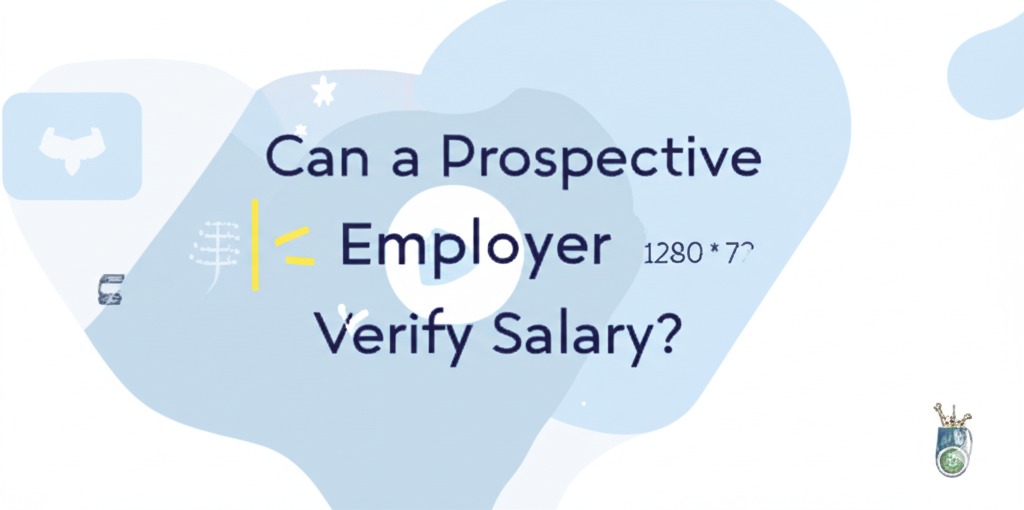
When you’re applying for a new job, it’s common for the hiring company to request information about your past compensation. But can a prospective employer actually verify your salary? It’s a question many job seekers wonder about—especially in today’s competitive and privacy-conscious job market.
In this article, we’ll break down what employers can and can’t do when it comes to checking your previous pay, what methods they might use, and how you can prepare if the question comes up during your job search.
Why Employers Want to Know Your Previous Salary
Employers are often curious about your past salary for a few key reasons:
- Benchmarking: They want to make sure their offer is competitive.
- Budgeting: Understanding your past compensation helps them manage internal salary bands.
- Qualification check: Your salary history might give insight into your level of experience.
While these motivations might make sense from a business standpoint, they raise important questions about privacy and fairness—especially in light of changing laws and evolving hiring practices.
Is It Legal for Employers to Ask for Salary History?
Varies by State or Country
In many places, it’s still legal for employers to ask about your salary history—but that doesn’t mean they can verify it without your permission.
- In the U.S., several states and cities (such as California, New York City, and Massachusetts) have salary history bans, making it illegal to ask candidates for past compensation.
- Other jurisdictions may allow it, but limit how the information can be used.
Can You Refuse to Answer?
Yes. Even if you’re in a location where it’s legal to ask, you’re not obligated to provide your salary history. You can politely redirect the conversation toward your salary expectations instead.
How Can Employers Verify Salary?
If an employer is determined to find out your past pay, here are some ways they might try:
1. Contacting Previous Employers
Some companies may attempt to call your former employer’s HR department to confirm salary details. However:
- Most HR departments only verify dates of employment and job titles.
- Salary verification is uncommon and often only provided with your written consent.
2. Background Checks
If you authorize a comprehensive background check, it might include employment verification services that check compensation. But again, this typically requires your consent.
3. Pay Stubs or Tax Documents
Rarely, employers may ask for pay stubs, W-2s, or tax returns to confirm salary, but this is not standard practice and could be seen as invasive.
🔒 Key Point: Employers usually cannot verify your salary without your permission due to privacy regulations and company policies.
What to Do If You’re Asked About Salary
1. Redirect the Question
If you’re uncomfortable, you can say:
“I prefer to focus on the value I bring to this role. Based on my experience and the responsibilities, I believe a fair range would be…”
2. Research Market Rates
Use tools like Glassdoor, PayScale, and LinkedIn Salary Insights to understand what others in similar roles earn. This will help you negotiate confidently and justify your expected range.
3. Be Honest If You Share
If you choose to disclose, make sure the information is accurate—especially if you’re asked to provide documentation later.
Salary History vs. Salary Expectations
It’s important to distinguish between:
- Salary history – What you’ve earned in past roles.
- Salary expectations – What you hope to earn in your next role.
Most employers today are moving toward asking for expectations instead of history, especially in regions where laws are shifting to promote pay equity.
How Salary History Bans Promote Fair Pay
Salary history bans aim to eliminate wage discrimination. Relying on previous salaries can perpetuate existing pay gaps, especially for women and minorities. By focusing on market value and skills rather than past earnings, these bans promote fairer, more equitable compensation practices.
Some benefits of these laws include:
- More transparency in pay
- Less bias in negotiations
- Increased trust between employer and employee
What Job Seekers Should Know
Here are a few takeaways for job seekers:
- Know your rights: Research your local laws regarding salary history questions.
- Prepare your response: Have a go-to answer ready if you’re asked.
- Keep documentation private unless you choose to disclose.
- Focus on your value, not your past compensation.
Conclusion: Be Prepared, Be Informed
So, can a prospective employer verify salary? Technically, yes—but usually only with your permission. Most employers won’t or can’t access your salary details without your consent, and many are moving away from relying on this information altogether.
The best approach? Be ready to steer the conversation toward your skills, experience, and salary expectations. Know your rights, research fair pay for your role, and don’t be afraid to advocate for yourself.
👉 Need help preparing for your next salary negotiation? Check out our guides on crafting your compensation pitch and negotiating with confidence!

Andre Cuevas provides career insights, job search strategies, and professional advice to help individuals navigate the job market and achieve their career goals.





